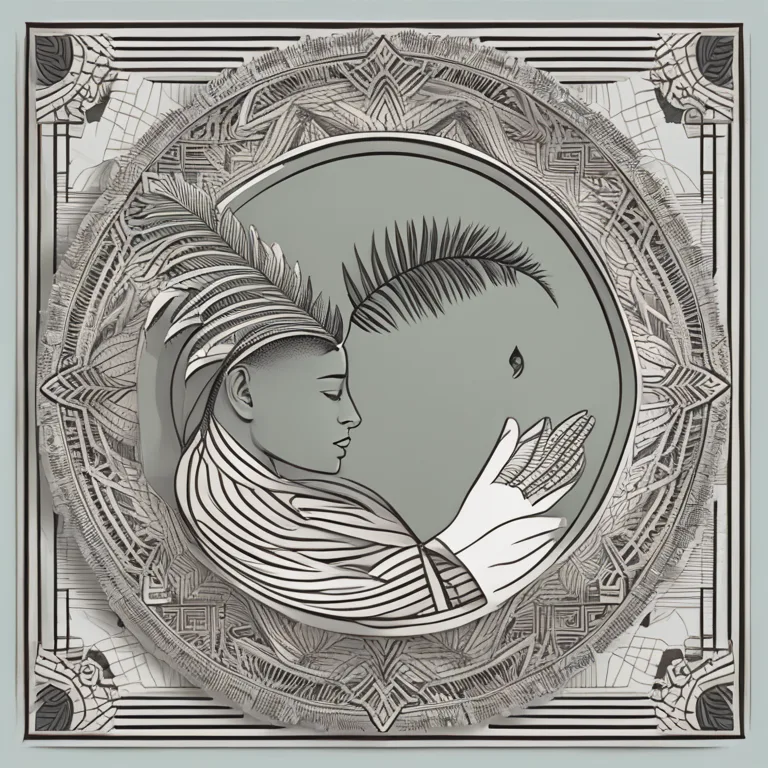
The Science Behind Palm Lines: Insights and Perspectives
Delve into the enigmatic world of palmistry as we examine the science and significance behind the lines etched on our palms, connecting tradition with modern interpretations.
article by Nora Pennington
Palmistry: A Brief Overview
The practice of palmistry, also known as chiromancy, dates back thousands of years, finding roots across various cultures. It presents a fascinating intersection of tradition and pseudo-science, where the lines on one's palms are said to harbor insights into their character and destiny. While often regarded with skepticism by the scientific community, palmistry has persisted in popularity, with proponents claiming to read the past, present, and future through the intricate lines and patterns on the hands.

The Heart Line and Emotions
One of the most prominent lines in palmistry is the Heart Line, believed to reflect a person's emotional stability, romantic perspectives, and cardiac health. Stretching across the upper palm, it's said that a deep, clear Heart Line indicates strong emotional intelligence and fulfilling relationships. Modern enthusiasts link various patterns in the Heart Line to relationship styles, and while such claims lack empirical support, they continue to intrigue those seeking personal insights.

The Head Line and Intellect
Another critical palm line is the Head Line, which some associate with intellectual tendencies, communication style, and knowledge-seeking behavior. Traditionally, a straight and distinct Head Line suggests practicality, whereas a wavy line hints at creative thinking. Contemporary practitioners may compare these interpretations with psychological profiling, although the evidence remains anecdotal rather than scientifically substantiated.

The Life Line and Vitality
The Life Line, often misunderstood as a predictor of lifespan, is said to offer insights into vitality, general wellbeing, and major life changes. Palmists assert that the clarity and length of this line reflect one's energy and zest for life. Despite the lack of scientific backing, those drawn to palmistry view the Life Line as a symbol of life's trajectory, with various forks and breaks denoting significant transitions.

Scientific Scrutiny and Modern Views
As palmistry endures into 2024, its assertions remain largely unverified by scientific methods. Critics argue that its readings are often vague and subjective, relying on the Barnum effect, where individuals give personal meaning to general statements. Nonetheless, the practice has seen a resurgence in the digital age, with apps and websites offering palm readings and drawing people who embrace it as part of spiritual exploration or cultural expression.
Combining Tradition with Technology
In our tech-dominated era, palmistry has merged with technological advancements, providing personalized readings using algorithms and image recognition. This synergy of tradition and innovation has broadened palmistry's reach, though it raises questions about personal data use and the mechanization of a deeply personal art. Whether these digital interpretations hold true to the essence of palmistry or not, they signify a new chapter in its storied existence.
The Personal Touch in Readings
Despite advancements in technology, many enthusiasts insist that the true value of palmistry lies in the personal touch of a skilled practitioner. This one-on-one interaction, advocates argue, is vital for a genuine and insightful reading, where the palmist's intuition plays a crucial role. While the future of palmistry may blend with AI and data analysis, its personal aspect remains a central tenet for many followers.
Published: 1/5/2024
Modified: 1/5/2024
More predictions
Come back here soon to learn more about yourself and your future


Symmetry of Palm Lines: Fact or Myth?
Discover the truth behind the symmetry of palm lines and what it reveals about palmistry's mysteries.


The Phenomenon of Fading Palm Lines
Delve into the intriguing phenomenon of disappearing palm lines and what it signifies in the realms of palmistry and personal destiny.


Reflective Musings: Quintessential Palm Reading Quotes
Delve into the wisdom of palmistry with thought-provoking quotes that encapsulate the essence of this ancient practice in our digital age.